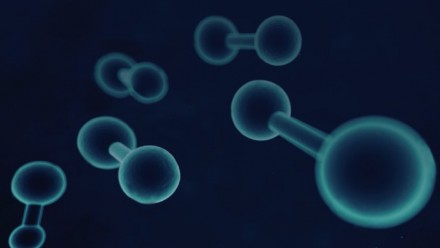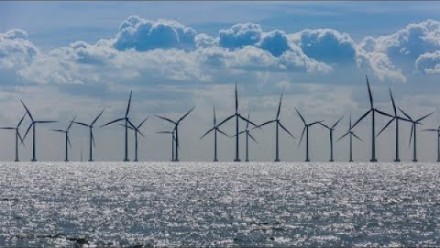Hydrogen economy
Hydrogen has the potential to provide the missing link between renewable energy - such as wind and solar power - and industrial energy users that have yet to find a viable alternative to fossil fuels. Additionally, zero-carbon hydrogen could be a key energy vector, allowing renewable energy to be stored and transported around the world.
The broad portfolio of hydrogen research at ANU is unique in Australia. It spans the hydrogen value chain, including technological expertise in generation and storage, as well as social license issues, governance, and economics.
Hydrogen generation
Several different emerging technologies are under active development by ANU researchers, and have the potential to drastically reduce the cost of producing hydrogen.
Advances in electrocatalysts are needed to increase the efficiency of electrolysis. Researchers in the Research School of Chemistry (RSC) are investigating bio-mimetic electrodes for water splitting that are highly efficient. At the Research School of Engineering (RSE) and RSC, new types of catalysts based on low-cost, metal-oxide materials are being studied. The next steps are to develop prototypes for mid-scale H2 generation by photo- and electrochemical water splitting.
Concentrated solar thermal systems can provide the heat needed to split water with redox processes, without the need for fossil fuels. The Solar Thermal Group (RSE) is developing high-temperature hydrogen generation technologies using concentrated solar energy. They are studying thermo- and electro-chemical pathways from proof-of-concept to advanced reactor and system design.
Photo-electrochemical (PEC) routes could allow hydrogen generation directly from sunlight, removing the need for electricity inputs. This approach is being developed by researchers across the ANU for high-efficiency solar hydrogen generation:
- Employing the latest advances in silicon tandem solar cells (Solar Group, RSE),
- Developing thin-film, multi-junction III-V semiconductor photoelectrodes (Semiconductor Optoelectronics and Nanotechnology Group, Research School of Physics and Engineering)
- Designing heterojunction nanostructured (Nanotechnology Research Lab, RSE)
- Combining of well-established photovoltaic technology with low-cost earth-abundant catalysts (Nanotechnology Research Lab, RSE)
Storage transportation and usage
ANU researchers are investigating safer, cheaper, and more effective ways to store and transport hydrogen.
The Functional Materials Research Group (RSC), are developing liquid-state H2 storage and conversion based on organic hydrogen storage materials. This work could lead to safe, cheap, environment-friendly and scalable hydrogen storage technology at ambient temperature and pressure.
Hydrogen may also be stored and transported using ammonia as a vector. The Solar Thermal Group (RSE) has significant expertise in ammonia storage from over two decades experience developing a solar thermochemical energy storage system based on the reversible ammonia reaction.
Techno economic, governance and regulation analysis
Decision support tools for multiscale integration of energy storage systems with national and international energy markets are needed to optimise the deployment of hydrogen. Together with industry partners, researchers are developing techno-economic decision support tools for cross-validation and identification of the most feasible supply chain routes for local H2 market and export.
A wide range of social science analysis is needed to address prerequisites and underpinnings of an Australian hydrogen economy. ANU researchers are investigating the social, economic, and political drivers of demand for Australian hydrogen exports to the Asia-Pacific, along with governance and policy frameworks to enable large-scale investments for hydrogen production, and the economic effects of a hydrogen industry.
Leaders
Researchers
- Emeritus Professor Kenneth Baldwin
- Senior Professor Amanda Barnard
- Associate Professor Fiona Beck
- Honorary Professor Nick Birbilis
- Professor Paul Burke
- Dr Annie Colebatch
- Professor Joe Coventry
- Dr Huan Doan
- Professor Michael Ellwood
- Dr Reza Fazeli
- Dr Jorrit Gosens
- Ben Groenewold
- Professor Llewelyn Hughes
- Professor Chennupati Jagadish
- Dr Siva Karuturi
- Emeritus Professor Elmars Krausz
- Dr Peter Kreider
- Professor Yun Liu
- Dr Hieu Nguyen
- Dr Mousami Prasad
- Dr Robin Purchase
- Associate Professor John Pye
- Professor Ilya Shadrivov
- Dr Astha Sharma
- Professor Adrian Sheppard
- Dr Vladlen Shvedov
- Professor Sean Smith
- Dr Matthew Stocks
- Professor Robert Stranger
- Professor H. Hoe Tan
- Professor Valeska Ting
- Dr Juan Felipe Torres Alvarez
- Dr Julie Tournet
- Professor Antonio Tricoli
- Associate Professor Takuya Tsuzuki
- Dr Ye Wang
- Dr Zongyou Yin
- Dr Doudou Zhang
Students
Professional staff
2022
Recognizing the role of uncertainties in the transition to renewable hydrogen, Reza Fazeli, Fiona J Beck, and Matthew Stocks, International Journal of Hydrogen Energy.
Renewable hydrogen will be produced on land traditionally owned by First Nations people: will its owners benefit?, Lily O’Neill, Fiona J Beck, Wenting Cheng, Australian Environment Review.
‘Clean’ hydrogen? – Comparing the emissions and costs of fossil fuels versus renewable electricity based hydrogen, Thomas Longden, Fiona J Beck, Frank Jotzo, Richard Andrews, Mousami Prasad, Applied Energy.









